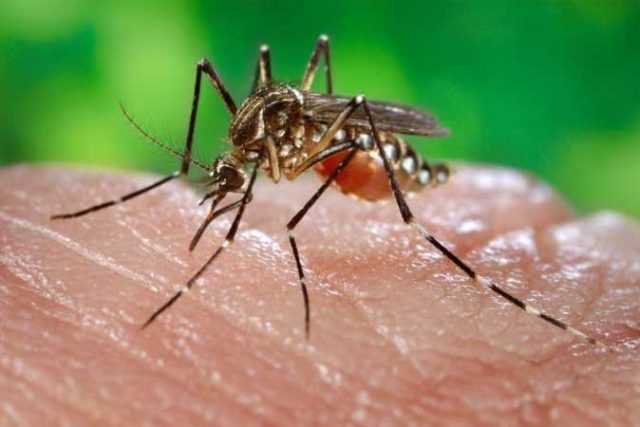Wolbachia bacteria ‘dramatically reduces’ dengue — study

Patricia B. Mirasol
DENGUE FEVER cases have been cut by 77% in a trial that infected disease-spreading mosquitoes with a bacteria called Wolbachia, according to the results of a randomized controlled trial published this June in the New England Journal of Medicine.
The study has significant implications for 40% of the world’s population at risk of dengue, according to the World Mosquito Program (WMP) initiated by Monash University, Australia.
Wolbachia is a naturally occurring bacteria that exists in around 50% of all insects, but not the Aedes aegypti mosquito until it was introduced in the laboratory by WMP researchers. Wolbachia restricts the amount of dengue that disseminates from the mosquito midgut into the mosquito’s saliva.
“At the cellular level, replication of the viral genome is inhibited when the virus infects cells that are also occupied by Wolbachia,” Katie Anders, WMP’s lead researcher and director of impact assessment, told BusinessWorld in an e-mail interview. “This is likely due to competition between Wolbachia and viruses for resources such as energy and nutrients.”
DRAMATIC REDUCTION
In Yogyakarta City, Indonesia, and surrounding areas where the infected mosquitoes were released, the number of cases of dengue decreased significantly compared with parts of the city where they were not, according to the three-year Applying Wolbachia to Eliminate Dengue trial, conducted by WMP in collaboration with Indonesia’s Tahija Foundation and Gadjah Mada University.
Once Wolbachia-carrying mosquitoes are released, they breed with wild mosquitoes. Over time, the percentage of mosquitoes carrying Wolbachia grows until it remains high without the need for further releases.
“It takes between three to six months of mosquito releases undertaken every one to two weeks for Wolbachia to become established in the local mosquito population,” said Ms. Anders. “We then see reduced dengue in the years that follow.”
This self-sustaining method is said to offer a safe, effective, and long-term solution to reducing the burden of the disease.
WMP director Scott O’Neill said in a press statement: “This is the result we’ve been waiting for — evidence that our Wolbachia method is safe, sustainable, and dramatically reduces incidence of dengue. It gives us great confidence in the positive impact this method will have worldwide when provided to communities at risk of these mosquito-transmitted diseases.”
The “public health value of Wolbachia against dengue” was recognized by the World Health Organization’s (WHO) Vector Control Advisory Group in a December 2020 virtual meeting.
Climate change amplified the distribution of Aedes aegypti, the mosquito species that transmit the dengue virus, according to WHO. Other factors including rapid unplanned urbanization, increased humidity, devolved vector control services, and movement of people and goods have also facilitated the spread of the disease.
Dengue is common in more than 100 countries around the world, including the Philippines. And a person can be infected with a dengue virus as many as four times in his or her lifetime.
In August 2020, the Philippines’ Department of Health (DoH) reported that its W.I.L.D. (or water-borne infectious diseases, influenza, and leptospirosis, including dengue) initiative resulted in a drop of dengue cases (59,675 in 2020 from 430,282 in 2019) and mortalities (231 in 2020 from 1,612 in 2019). Among the activities implemented by the DoH is the Wolbachia Project within Bicol’s Center for Health Development as part of a non-invasive way to control the local dengue-carrying mosquito population.
Because the Wolbachia project in Bicol is ongoing, WMP declined to comment until after the results of the study are available.
WOLBACHIA WORLDWIDE
WMP aims partner with national and local governments, corporate citizenship programs, charitable organizations, and non-governmental organizations to expand Wolbachia protection worldwide. To date, the WMP has supported releases in 11 countries in Asia, Australia, Latin America, and the Pacific, with an estimated 6.8 million people benefiting from Wolbachia coverage.
The cost of deployment is currently less than $10 per person, said Ms. Anders, with the organization working towards reducing it to $1 per person. “In high-density urban areas, Wolbachia is expected to be cost-saving over 10 years, returning 2–3 dollars in economic benefits for every dollar invested through averted healthcare costs and lost wages,” she said.
